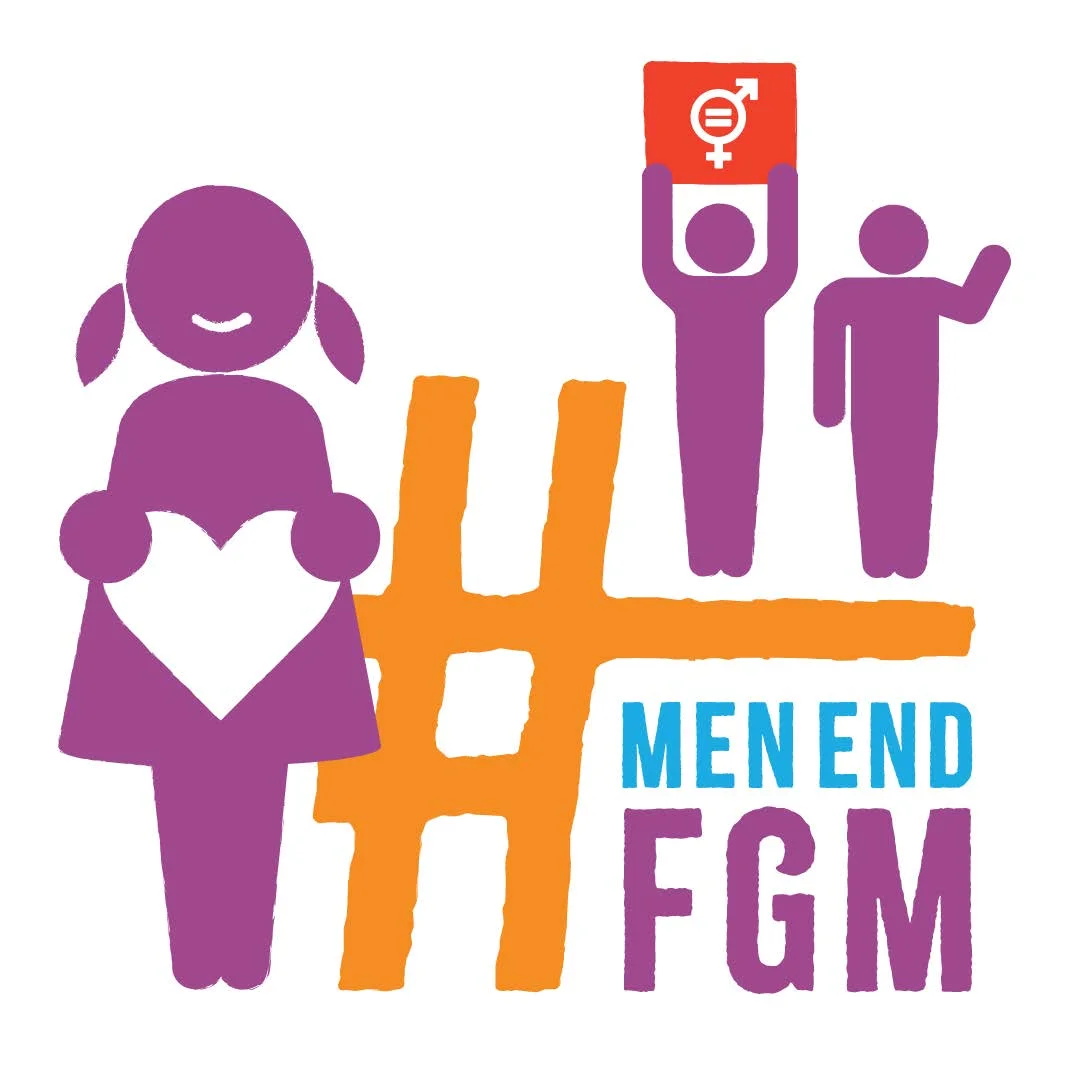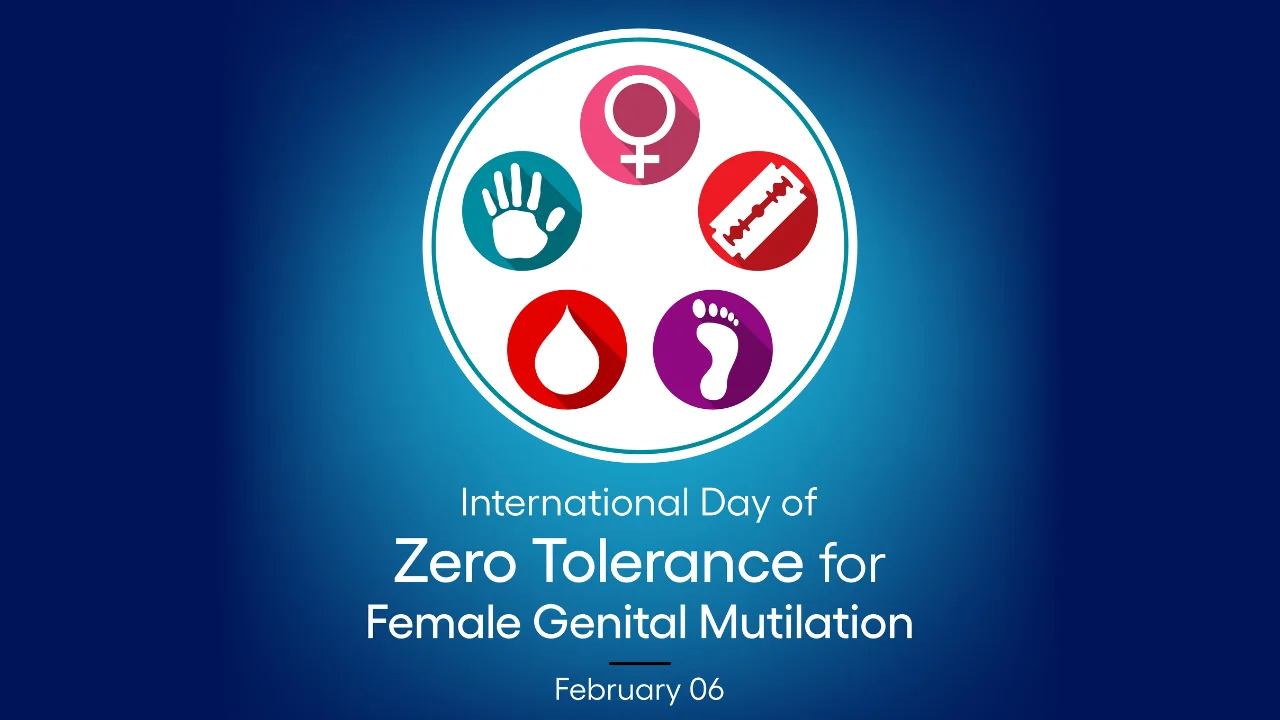International Day of Zero Tolerance for Female Genital Mutilation 2024
International Day of Zero Tolerance for Female Genital Mutilation (FGM) is observed annually on February 6th to raise awareness about this harmful practice and promote its elimination. FGM involves the partial or total removal of external female genitalia for non-medical reasons and is a violation of the human rights of girls and women.
International Day of Zero Tolerance for FGM Theme 2024
The theme for International Day of Zero Tolerance for Female Genital Mutilation (FGM) 2024 has not been announced yet. The theme for the previous year 2023 was “Partnership with Men and Boys to Transform Social and Gender Norms to End FGM”.
This theme emphasizes the critical role of men and boys in ending FGM. It highlights the need for men and boys to:

- Challenge harmful social and gender norms that perpetuate FGM.
- Educate other men and boys about the negative consequences of FGM.
- Support girls and women who are at risk of FGM or who have undergone the practice.
- Advocate for policies and programs that are inclusive of men and boys in the fight to end FGM.
What is Female Genital Mutilation (FGM)
Female genital mutilation (FGM), also known as female genital cutting, is a harmful traditional practice. It involves the partial or total removal of the external female genitalia for non-medical reasons. It is a violation of girls’ and women’s human rights and has devastating consequences for their physical and mental health.
Types of FGM
- Type I: Partial or total removal of the clitoral hood (prepuce) and/or the clitoris.
- Type II: Partial or total removal of the clitoris and the inner labia (lips) of the vagina, with or without excision of the outer labia.
- Type III: Narrowing of the vaginal opening by cutting and repositioning the labia minora or labia majora, with or without excision of the clitoris (also known as infibulation).
- Type IV: All other harmful procedures to the female genitalia for non-medical purposes, such as pricking, piercing, scraping, and cauterization.
Prevalence of FGM
- At least 200 million girls and women alive today have undergone some form of FGM.
- The practice is concentrated in 31 countries in Africa, the Middle East, and Asia.
- Data on prevalence is limited and often unreliable due to the sensitive nature of the topic and the fact that FGM is often performed in secret.
Consequences of FHM
- Immediate: Severe pain, bleeding, infections, and shock.
- Long-term: Chronic pain, difficulty urinating and menstruating, sexual dysfunction, infertility, childbirth complications, and psychological trauma.
Why is FGM practiced?
The reasons for FGM are complex and vary depending on the community. Some of the factors that contribute to the practice include:
- Social and cultural norms: FGM is often seen as a rite of passage that prepares girls for adulthood and marriage.
- Gender inequality: FGM is rooted in patriarchal structures that subordinate women and girls.
- Misconceptions about female sexuality: FGM is mistakenly believed to curb female sexuality and promote chastity.
- Lack of awareness and education: Many communities lack accurate information about the harmful consequences of FGM.
International Efforts to End FGM
There is growing international recognition of FGM as a human rights violation. Several international organizations and governments are working to end the practice through:
- Raising awareness and educating communities: Providing information about the harmful consequences of FGM and promoting alternative rites of passage.
- Supporting survivors: Offering medical and psychological care to survivors of FGM.
- Enacting laws and policies: Criminalizing FGM and protecting girls at risk.
- Empowering women and girls: Promoting girls’ education and gender equality.
History of International Day of Zero Tolerance for FGM
The International Day of Zero Tolerance for Female Genital Mutilation (FGM) stands as a testament to the global movement working to eradicate this harmful practice. Its history reflects years of tireless efforts to raise awareness, advocate for change, and empower individuals and communities.
Early Steps: A Growing Movement
- 1970s: Increasing awareness about FGM and its harmful consequences emerges through grassroots activism and research.
- 1984: The first international conference on FGM is held in Khartoum, Sudan, marking a turning point in global recognition of the issue.
- 1994: The United Nations Population Fund (UNFPA) and UNICEF launch a joint program on FGM, providing critical support for anti-FGM initiatives.
- 2003: The African Union adopts the Protocol to the African Charter on Human and Peoples’ Rights on the Rights of Women in Africa, explicitly prohibiting FGM.
Official Recognition: A Global Day of Action
- 2008: The UN General Assembly officially establishes February 6th as the International Day of Zero Tolerance for FGM.
- 2012: The UN resolution on intensifying global efforts to eliminate FGM is adopted, calling for increased action and resources.
- 2014: The Global Strategy to Stop FGM: 2014-2024 is launched, outlining a comprehensive approach to eliminating FGM.
Impact and Achievements
- Increased global awareness: The International Day has significantly raised awareness about FGM, leading to a shift in public opinion and social norms.
- Policy and legal reforms: Over 30 countries have adopted laws and policies prohibiting FGM, demonstrating their commitment to ending the practice.
- Empowered communities: Initiatives are mobilizing communities to abandon FGM and promote alternative rites of passage.
- Investing in girls and women: Programs are providing education, healthcare, and economic opportunities to support girls and women affected by FGM.
The International Day of Zero Tolerance for FGM serves as a powerful platform to accelerate the movement towards a world free from FGM. By continuing to work collaboratively, raising awareness, and empowering communities, we can achieve this goal and ensure the health, safety, and well-being of girls and women everywhere.
Significance of International Day of Zero Tolerance for FGM
- Educate the public about FGM, its consequences, and the importance of ending the practice.
- Equip girls and women with knowledge and resources to protect themselves and speak out against FGM.
- Encourage men and boys to participate in the movement to end FGM and challenge harmful gender norms.
- Advocate for and support national and international legislation to protect girls from FGM.
- Support research on the impact of FGM and develop effective interventions to prevent its practice.
6th February 2024 Special Day
On the 6th of February 2024, the world marks the International Day of Zero Tolerance for Female Genital Mutilation (FGM), aiming to spotlight and eradicate this harmful practice. FGM, involving the non-medical removal of external female genitalia, is a grave violation of the human rights of girls and women. This day serves as a crucial platform for raising awareness, fostering global understanding, and advocating for the elimination of FGM to ensure the well-being and dignity of females worldwide.
- Indian Bank Recruitment 2025 Out for 1500 Apprentice Posts
- Indian Bank Apprentice Salary 2025, Pay Scale, Salary Structure
- Indian Bank Apprentice Syllabus & Exam Pattern 2025, Check Details
- Railway RPF Syllabus 2024, Check Exam Pattern, Topic And Syllabus
- SSC JE vs RRB JE, Which Is Better? Know Detailed Comparison
- SSC CGL Study Plan 2025 For Next 25 Days With Tips, Tricks

Hello, I’m Aditi, the creative mind behind the words at Oliveboard. As a content writer specializing in state-level exams, my mission is to unravel the complexities of exam information, ensuring aspiring candidates find clarity and confidence. Having walked the path of an aspirant myself, I bring a unique perspective to my work, crafting accessible content on Exam Notifications, Admit Cards, and Results.
At Oliveboard, I play a crucial role in empowering candidates throughout their exam journey. My dedication lies in making the seemingly daunting process not only understandable but also rewarding. Join me as I break down barriers in exam preparation, providing timely insights and valuable resources. Let’s navigate the path to success together, one well-informed step at a time.






